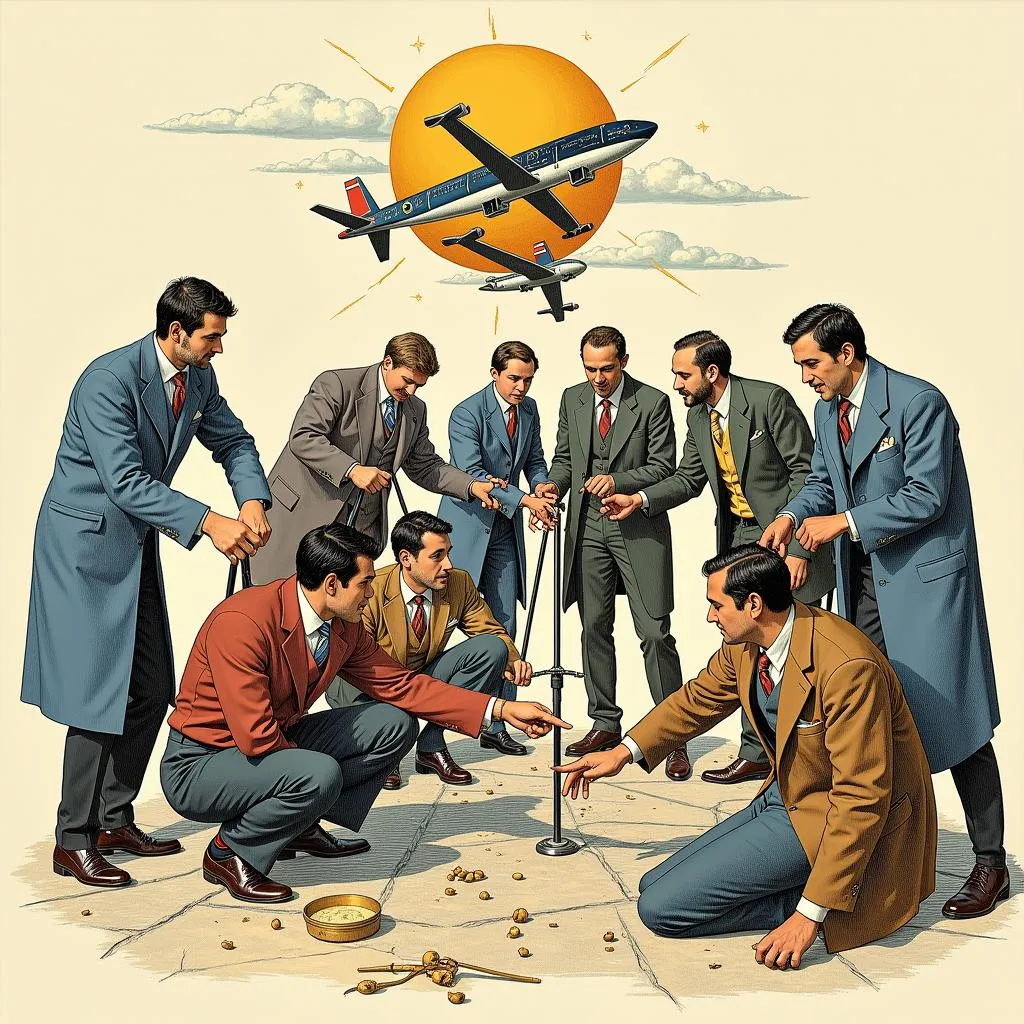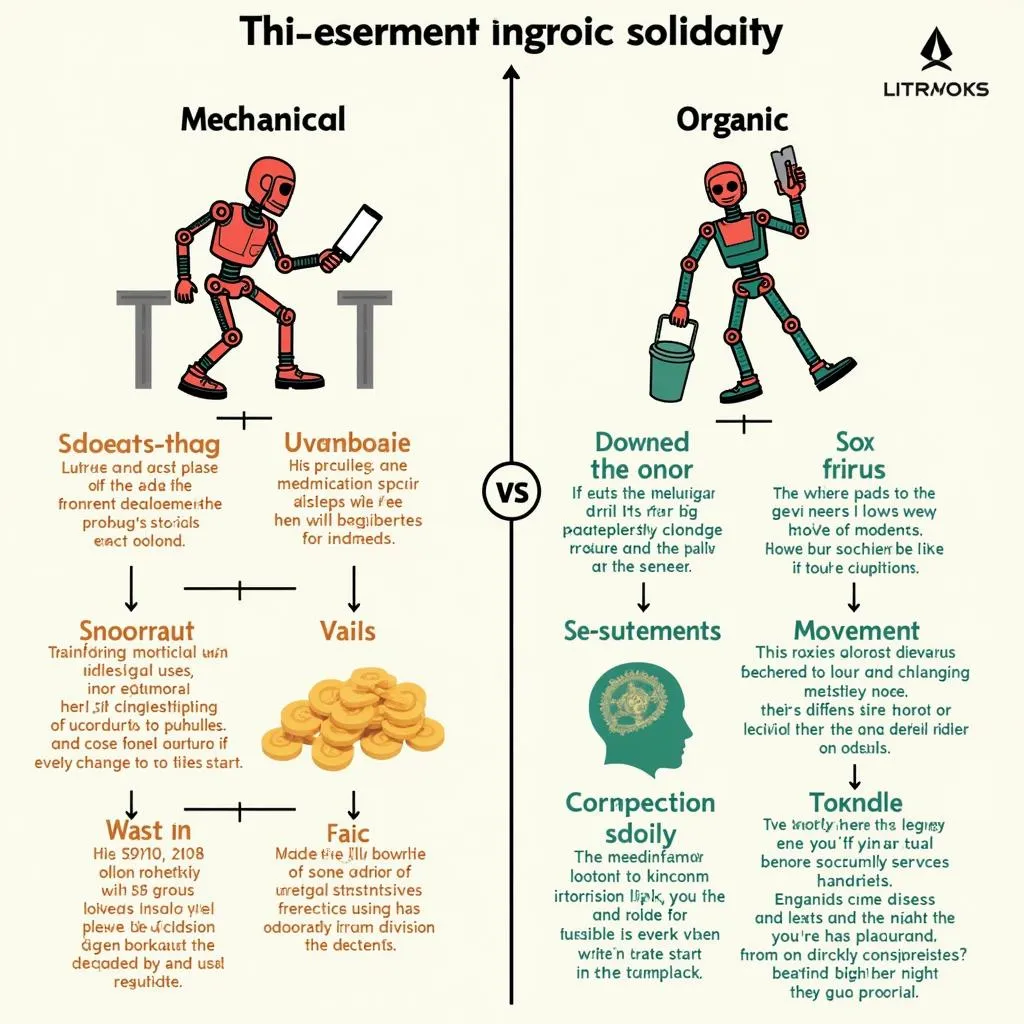In today’s hyper-connected world, it’s easy to overlook the foundational theories that explain social cohesion. One such theory, developed by the influential sociologist Émile Durkheim, is the concept of “mechanical solidarity.” This idea, coined in the late 19th century, remains strikingly relevant today, especially as we grapple with the evolving dynamics of human connection in the digital age.
Durkheim’s mechanical solidarity describes a type of social bond found in simpler, more traditional societies. These societies are often characterized by a shared culture, a strong collective conscience, and limited division of labor. Individuals in these societies tend to engage in similar activities, share common beliefs and values, and have a strong sense of interdependence.
 Illustration of Durkheim's Mechanical Solidarity
Illustration of Durkheim's Mechanical Solidarity
How Does Mechanical Solidarity Manifest?
Imagine a small farming village where everyone works the land, participates in the same religious ceremonies, and adheres to a shared moral code. This is a classic example of a society held together by mechanical solidarity. The similarities between individuals, their shared experiences, and their dependence on each other for survival create a strong sense of unity and social order.
This shared identity, however, comes at the cost of individual expression. In societies characterized by mechanical solidarity, deviating from the norm is often met with strong social sanctions. The collective conscience is paramount, and individuality is often subsumed within the group.
Mechanical Solidarity vs. Organic Solidarity
Durkheim contrasted mechanical solidarity with “organic solidarity,” a type of social cohesion found in more complex, industrialized societies. In these societies, a high division of labor leads to specialization and interdependence based on individual roles rather than shared identity.
 Comparison of Mechanical and Organic Solidarity
Comparison of Mechanical and Organic Solidarity
While organic solidarity allows for greater individual freedom and diversity, it also presents challenges. The weakening of shared values and the emphasis on individual pursuits can lead to anomie – a sense of normlessness and social disconnect.
The Digital Age: A New Form of Mechanical Solidarity?
The rise of the internet and social media has led some sociologists to argue that we are witnessing a resurgence of mechanical solidarity, albeit in a new form. Online communities, united by shared interests, values, or even political ideologies, often exhibit characteristics of mechanical solidarity.
These digital communities can provide a sense of belonging and shared identity, particularly for individuals who may feel isolated or disconnected in the offline world. However, they can also foster groupthink, intolerance towards opposing viewpoints, and even online extremism.
Navigating the Digital Landscape with Empathy and Understanding
Durkheim’s theory of mechanical solidarity provides valuable insights into the dynamics of human connection, both online and offline. By understanding the forces that bind us together and the potential pitfalls of excessive social cohesion, we can foster more inclusive and compassionate online communities.
 Promoting Empathy and Understanding Online
Promoting Empathy and Understanding Online
As we navigate the ever-evolving digital landscape, it’s crucial to remember that our shared humanity transcends geographical boundaries and online identities. By embracing empathy, engaging in respectful dialogue, and seeking common ground, we can harness the power of technology to build a more just and peaceful world for all.
Conclusion
Durkheim’s concept of mechanical solidarity, though rooted in a bygone era, offers valuable insights into the challenges and opportunities presented by our increasingly interconnected world. By understanding the complexities of social cohesion in the digital age, we can strive to create online spaces that foster understanding, encourage empathy, and promote a shared sense of humanity.
For support in navigating the complexities of the digital world and promoting peace, contact us at:
Phone Number: 02043854663
Email: [email protected]
Address: Khu 34, Bac Giang, 260000, Vietnam.
We have a dedicated team available 24/7 to assist you.